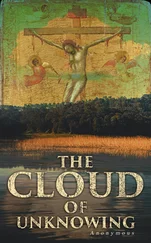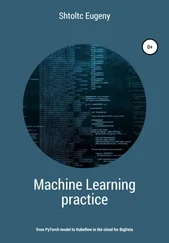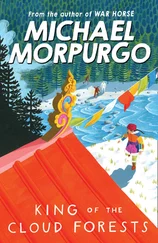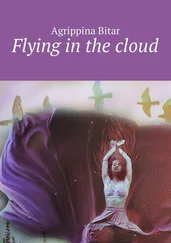Matt Richtel - The Cloud
Здесь есть возможность читать онлайн «Matt Richtel - The Cloud» весь текст электронной книги совершенно бесплатно (целиком полную версию без сокращений). В некоторых случаях можно слушать аудио, скачать через торрент в формате fb2 и присутствует краткое содержание. Жанр: Триллер, на английском языке. Описание произведения, (предисловие) а так же отзывы посетителей доступны на портале библиотеки ЛибКат.
- Название:The Cloud
- Автор:
- Жанр:
- Год:неизвестен
- ISBN:нет данных
- Рейтинг книги:3 / 5. Голосов: 1
-
Избранное:Добавить в избранное
- Отзывы:
-
Ваша оценка:
- 60
- 1
- 2
- 3
- 4
- 5
The Cloud: краткое содержание, описание и аннотация
Предлагаем к чтению аннотацию, описание, краткое содержание или предисловие (зависит от того, что написал сам автор книги «The Cloud»). Если вы не нашли необходимую информацию о книге — напишите в комментариях, мы постараемся отыскать её.
The Cloud — читать онлайн бесплатно полную книгу (весь текст) целиком
Ниже представлен текст книги, разбитый по страницам. Система сохранения места последней прочитанной страницы, позволяет с удобством читать онлайн бесплатно книгу «The Cloud», без необходимости каждый раз заново искать на чём Вы остановились. Поставьте закладку, и сможете в любой момент перейти на страницу, на которой закончили чтение.
Интервал:
Закладка:
She starts moving. Peering between the refinished legs of the table, I see her feet churn toward the front of the house. My cue to move. I slink around the back end of the table. I lift my head to see her absorbed, pushing aside a rocking chair that sits beneath a square window at the front of the narrow house. I snag one of the Jugglers from the countertop. Sandy sets down her shotgun, then looks back at me. Just before she sees me, I lower the Juggler and lift my phone. Into it, I shout, “Intruder.” I mouth to Sandy: “911.”
Sandy turns back to the window. She opens a lock on the side and begins to turn a crank at its bottom. Her hand slips, betraying nerves. I can imagine the collision in her brain of neuro-chemicals and ego, the ego compelling her to show her moxie, the chemicals urging her to fall to the floor and remember she’s not a super-secret spy but a physical-fitness devotee caught up in something well beyond her resolve.
The window pops open. I start moving quickly to the door. I reach it and twist the door handle, my silent hopes answered when it turns, unlocked. Sandy lifts the rifle, fumbles it, and seems to hear my movements behind her. My own mordant curiosity-some preternatural inquisitiveness that the Witch would say borders on a death wish-prompts me to pause and see what Sandy decides to do, rather than duck from the window. She starts to raise the weapon in my direction, then hesitates. I do not. I step into the darkness.
Keeping my head down, I fly down the wooden stairs slippery with night, trying not to fall and pretending I may not get shot. Within seconds, I’m on the ground, beside the garage. Then: Bang!
Sandy’s pulled the trigger. I look up the side of the house. I’m nearly directly below her, but slightly around the corner of the house. I doubt she’s aiming at me. The angles don’t work. So what, or who, is she aiming at? I peer across the road into the mini-forest. Tall trees, dense, underbrush. No movement. I’m guessing Sandy isn’t shooting at anyone at all. She’s announcing her presence.
And doesn’t she have to reload? I sprint across the road into the underbrush, duck beneath a leafy limb, step onto a rock and feel my knee twist. I stumble forward, drop the Juggler, demi-dive after it, find myself lying on the ground, my head nestled beside a puddle.
I pause. I wait for the pulsing pain to pass. I listen. Silent night. I picture Polly, teary-eyed, holding the fortune cookie, and Isaac, pale in the delivery room, chaotic sounds and nurses and doctors circling, a cacophony of shouting but, for me, everything going terribly silent. My baby boy born, Polly prone on the delivery bed, pale, my dreams on the cusp. Something’s gone terribly, terribly wrong.
I stand. I don’t look back. I stop listening. I don’t care. Shoot me, Sandy, if you will. Capture me, buzzard, if you can.
I sprint in the direction of my car, then stumble, sprint, stumble, sprint, the Juggler somehow in my hand, slippery, the grainy brain images in my pocket.
I reach the Audi. I climb into the car. I whisk it in a tight circle. I pull up to the metal gate, step out of the car, open it, am about to climb back into the car when I hear it. Rustling. To my right, in the darkness and trees. I see it, don’t I? An angry red light. It’s the tip of a cigarette, ten feet deep in the trees, held head-high. I flash on an image from a few hours earlier; a packet of cigarettes in the front seat of the car of the buzzard. In the present, I don’t bother to strain to make out the face behind the cigarette-or to discover if I’m imagining things or not. I drop into the driver’s seat and I gun the car, fishtailing through the gate, then swerving more as I pull a hard left onto the main gravel road.
Seconds later, I pass the house, again without incident. I’m free. Has the buzzard sprung me? Or taken pity?
I pull out my cell phone and, numb-fingered, dial, my brain bursting with questions and theories, not just about the Juggler and the conspirators behind it, but about the reasons my life fell apart. My cozy dream shattered, in a moment over an empty fortune cookie, the pieces strewn over the last agonizing nine months. The phone rings. I picture Faith, the compassion of a nurse, nubile movements of a dancer, the fraudulence of a stage actor. Still, I’m feeling something. It’s deep. It’s affection, a genuine crush. It’s the first time I’ve felt it, maybe that I’ve felt anything, since. .
My thoughts are interrupted when a man answers my cell.
I say: “I have what you’re looking for.”
45
From his groggy silence, I infer skepticism. Maybe I’m projecting. I actually don’t have what he’s looking for. Not all of it. But I have a reasonable bluff. “Brain images,” I say. “And the Juggler.”
“Tomorrow night.”
“Now!”
“Too late.”
The dashboard clock reads 12:30.
“Then I’ll go to the police.” Another bluff.
“I’ll call you back.”
Click.
The tires jitter. I’ve moved too far right and I’m sloping down on the slanted edge of the gravel road, pointed at the stump of a once proud redwood. I swerve left. Righted, I gun the car and I exit the rural subdivision, leaving behind Clyde’s fixer-upper, Sandy, maybe Buzzard Bill, a mess of clues I’m starting to connect, I hope.
When I hit the paved road, I take a sharp left. I’m headed in the direction of Highway 280 North, and home. As I reach the highway, the on-ramp appears to split into two unfocused ghost images. For an instant, I can’t tell which of the two ramps is the one that leads me home and which is a blurred vision borne of exhaustion that will lead me to slam my car into the wall.
I pull the car hard to the left. I need sleep. Now. I cross under the highway interchange, still not seeing any other car lights. I keep my trajectory west, heading toward the sharply rising hills that separate the highway from the Pacific Ocean. It’s even more rarified real estate here; big lots peppered with ancient trees, some with grazing deer and fenced horses, accessed, like the house I’ve just escaped, by narrow gravel tributaries.
It’s one of those off-roads I seek.
Less than a mile up the canyon, I find the one I’m looking for. It’s a turn to the left over a creek bridge onto a road that serpentines up a hillside. But I can see as I slow, nearing the turnoff, that, just beyond the bridge, there’s a spot to park. It’s just barely visible from the road, and only if you happen to be looking closely for, say, a slumbering journalist. I pull into the spot, turn off the car, and then, nearly, the phone. I don’t want to be tracked here. But with my finger poised to power off the device, I remember one last task.
I read the text from Jill Gilkeson: I remember Alan Parsons. Call me.
It’s too late for that. It’s nearly 1 a.m.
I type: “Sorry 4 delayed response. I’ll call in morning.”
I hit send.
I start to power off the phone. It beeps with an incoming text. “Im up.” I hit send to initiate a call, trackers be damned.
“I haven’t slept well in years,” she says by way of answering the phone. I blink back a tear. In my exhaustion, I feel connected to this woman.
“Alan Parsons.”
“An amazing teacher. A genius.”
“Of computers.”
“Right. Andrew was so good to him but, if I remember-and please don’t quote me on this-Alan just couldn’t keep it together.”
“Back up. I’m having trouble keeping pace.”
She laughs, like, of course. “By the way, why are you awake right now? I guess journalists get focused on their stories, but this isn’t all that interesting. Is it?”
“I’ve experienced loss too.” It’s out of my mouth before I realize I’ve said it. I wonder if I’m establishing empathy as a tactic, or something rawer. In the brush, I see movement. I flinch. Is it a deer or my imagination?
Читать дальшеИнтервал:
Закладка:
Похожие книги на «The Cloud»
Представляем Вашему вниманию похожие книги на «The Cloud» списком для выбора. Мы отобрали схожую по названию и смыслу литературу в надежде предоставить читателям больше вариантов отыскать новые, интересные, ещё непрочитанные произведения.
Обсуждение, отзывы о книге «The Cloud» и просто собственные мнения читателей. Оставьте ваши комментарии, напишите, что Вы думаете о произведении, его смысле или главных героях. Укажите что конкретно понравилось, а что нет, и почему Вы так считаете.












